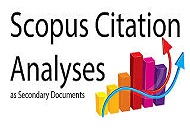Problem Posing Setting Kooperatif untuk Meningkatkan Kemampuan Menyelesaikan Masalah Matematika Siswa
DOI:
https://doi.org/10.33394/jk.v3i1.474Keywords:
Problem Posing, Co-operative, Mathematical ProblemsAbstract
References
As’ari, A. R. 2000. Problem Posing untuk Meningkatkan Profesionalisme Guru Matematika. Jurnal Matematika. Tahun V/Nomor 1, April 2000, Universitas Negeri Malang.
Bianchi, Cesare dan Costello, Fintan. 2008. Analogical Reasoning Helps learning of Similar Unknown Concepts: The Use of Analogies Between Categories in Category Learning. Proceeding of The 19th Irish Conference on Artificial Intelligence and Cognitive Science, 3-12, (Online), (http://academia.edu), diakses 12 Februari 2015.
Chng, Esther; Yew, Elaine H.J.; Schmidt, Henk G. 2011. Effects of Tutor-Related Behaviours On The Process of Problem-Based Learning. Advance In health Science education, 16: 491-503, (Online), (http://spinger.com), diakses 10 Oktober 2014.
Herawati, dkk. 2010. Pengaruh pembelajaran Problem Posing Terhadap Kemampuan Pemahaman Konsep Matematika Siswa Kelas XI IPA SMA Negeri 6 Palembang: Jurnal Pendidikan Matematika, Volume 4, No. 1, juni 2010.
Kilpatrik, Jeremy and Swafford, Jane. 2002. Helping Children Learn Mathematics. Washington: National Academy Press.
Kosko, Karl W. dan Wilkins, Jesse L.M. 2010. Mathematical Communication and Its Relation To The Frequency of Manipulative Use. International Electrinic Journal of Mathematics Education, 5 (2): 79-90, (Online),
Yuntawati & Lalu Abdul Aziz, Problem Posing Setting Kooperatif untuk Meningkatkan Kemampuan …
(http://iejme.com), diakses 5 Januari 2015.
Kramarski, Brancha. 2009. Developing A Pedagogical Problem Solving View for Mathematics teachers With Two Reflection Programs. International Electronic Journal of Mathematics Education. 2(1), (Online), (http://iejee.com), diakses 13 Oktober 2014.
Milkova, Stiliana. 2012. Strategi for Effective Lesson Planning. Center for Research On Learning and Teaching, (Online), (http://crlt.umich.edu), diakses e Desember 2014.
Silver, Edward A. and Cai, Jinfa. 1996. An Analysis of Arithmatic Problem Posing By Middle School Students. Journal for Research in Mathematics Education, (Online), Vol. 27, No. 5, 521-539, (http://www.jstor.org). diakses 1 Oktober 2014.
Siswono, Tatag Y.E. 2000. Pengajuan Soal (Problem Posing) Oleh Siswa Dalam Pembelajaran Geometri di SLTP. Makalah disajikan dalam Seminar Nasional Matematika â€Peran Matematika Milenium IIIâ€, Jurusan Pendidikan Matematika FPMIPA UNESA Surabaya, 2 November 2000. Dalam Eric database, (Online), (http://www.erics), diakses 10 Oktober 2014.
Siswono, Tatag Y.E. 2005. Upaya Meningkatkan Kemampuan Berpikir Kreatif Siswa Melalui Pengajuan Masalah. Jurnal Terakreditasi â€Jurnal Pendidikan Matematika dan Sain†FPMIPA Universitas Negeri Yogyakarta. (Online), Tahun X, No. 1, Juni 2005, ISSN 1410-1866, hal 1-9. (http://tatagyes.files.wordpress.com)
Svinicki, Marilla.2007. What They Don’t Know Can Hurt Them: The Role of Prior Knowledge in Learning. Center for Teaching and Learning. University of Minnesota, (Online), (http://tls.vu.edu.au), diakses 3 Desember 2014.
Yu, Fu-Yun; Liu, Yu-Hsin; dan Chan, Tak-Wai. 2005. A Web-Based learning System for Question-Posing and Peer Assessment. Innovations in Education and Teaching International. (Online), Vol. 42, No. 4, November 2005, pp. 337-348. (chan.lst.ncu.edu.tw/publications/2005-Yu-awl.pdf), diakses 5 Oktober 2014.
Downloads
Published
How to Cite
Issue
Section
Citation Check
License
License and Publishing AgreementIn submitting the manuscript to the journal, the authors certify that:
- They are authorized by their co-authors to enter into these arrangements.
- The work described has not been formally published before, except in the form of an abstract or as part of a published lecture, review, thesis, or overlay journal.
- That it is not under consideration for publication elsewhere,
- That its publication has been approved by all the author(s) and by the responsible authorities – tacitly or explicitly – of the institutes where the work has been carried out.
- They secure the right to reproduce any material that has already been published or copyrighted elsewhere.
- They agree to the following license and publishing agreement.
Authors who publish with JK agree to the following terms:
- Authors retain copyright and grant the journal right of first publication with the work simultaneously licensed under a Creative Commons Attribution License (CC BY-SA 4.0) that allows others to share the work with an acknowledgment of the work's authorship and initial publication in this journal.Â
- Authors are able to enter into separate, additional contractual arrangements for the non-exclusive distribution of the journal's published version of the work (e.g., post it to an institutional repository or publish it in a book), with an acknowledgment of its initial publication in this journal.
- Authors are permitted and encouraged to post their work online (e.g., in institutional repositories or on their website) prior to and during the submission process, as it can lead to productive exchanges, as well as earlier and greater citation of published work.
- Open Data Commons Attribution License, http://www.opendatacommons.org/licenses/by/1.0/ (default)

This work is licensed under a Creative Commons Attribution-ShareAlike 4.0 International License.








